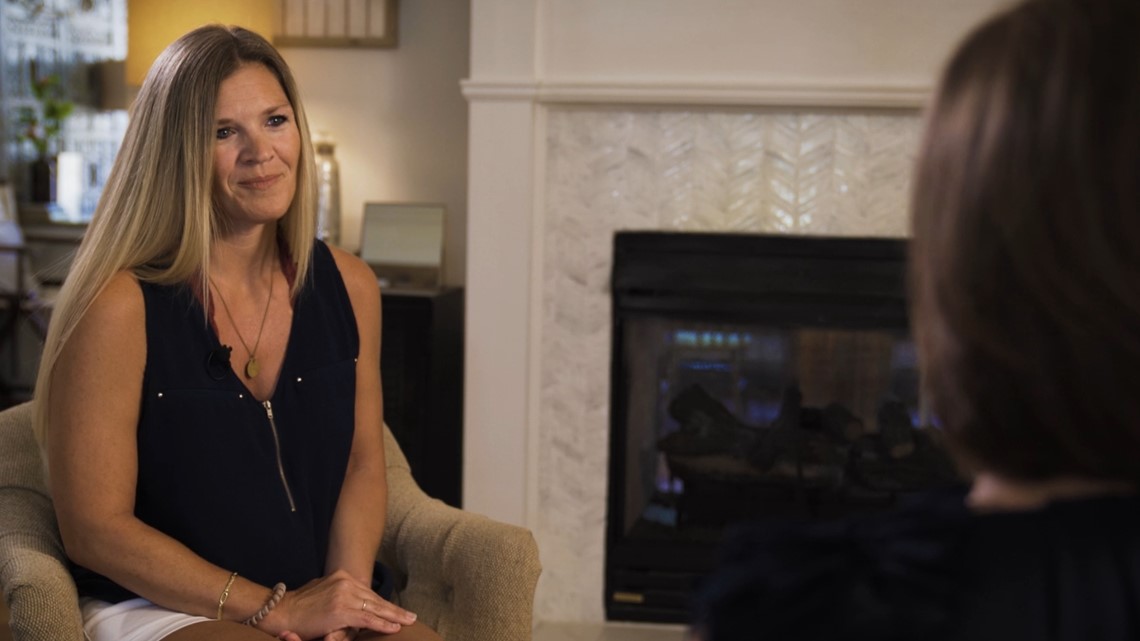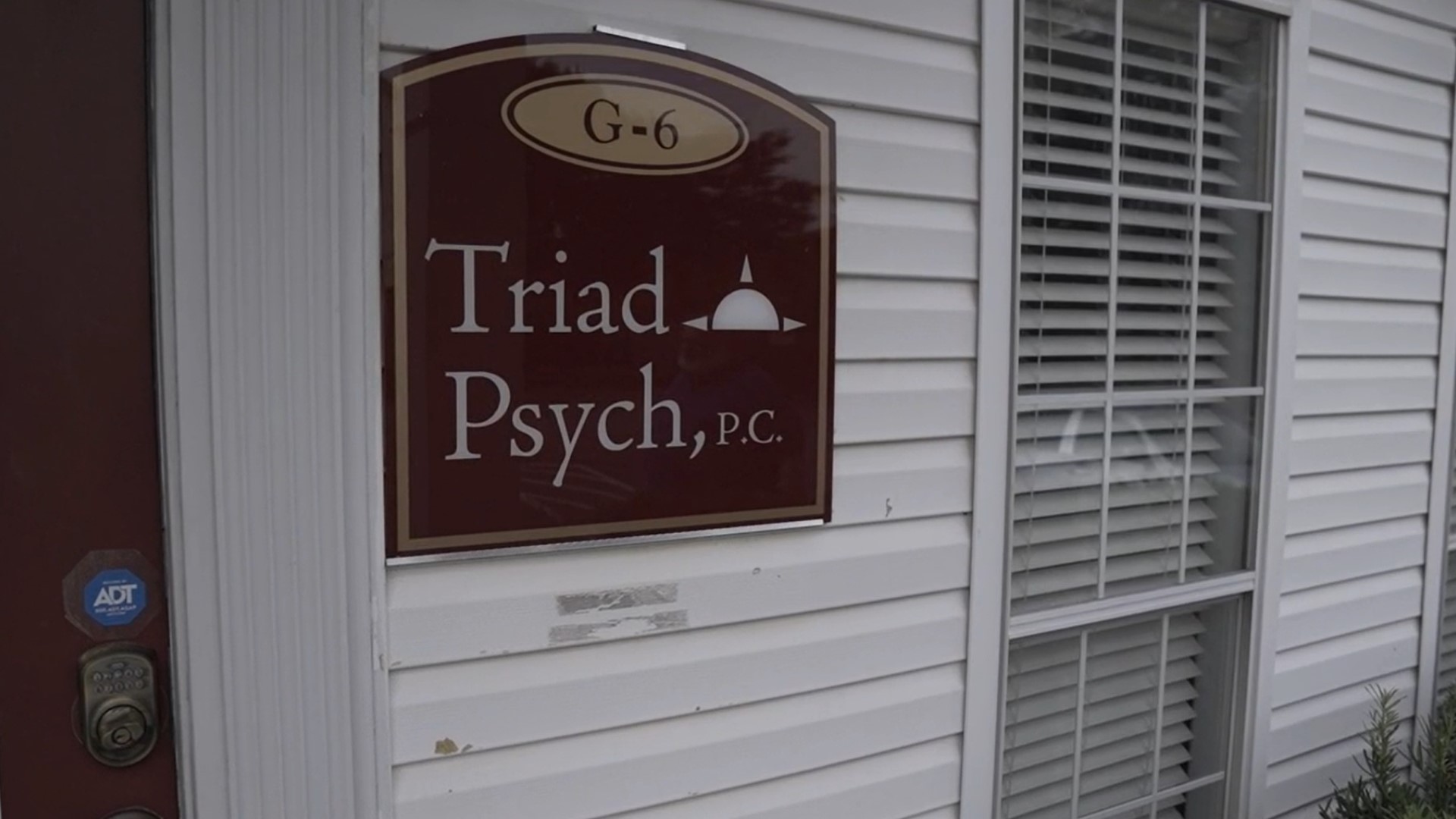ATLANTA — A historical bill promising to increase mental health access to every family in the state is now law. But, some families in west Georgia said the state isn’t holding insurance companies accountable to live up to that promise.
Sherry Testerman isn’t sure how lawmakers define mental health parity, but she’s pretty sure what her family experienced would not measure up.
Testerman and her husband adopted two amazing kids: Liam and Zoe. As they adjust to their new life, they need a little help. The children need someone to talk to. Liam, who has autism, needs someone to work with him on behavioral issues.
“We were going for social behavior. How to interact with friends,” Testerman, said recalling the therapy Liam received from his therapist, Wendy Worthy, while he was homeschooled during the pandemic.
“When I finally put him back in public school, his teacher in our IEP meeting was like, 'I don’t know what you’re doing or what you’ve done, but please don’t stop. Because his behavior is night and day different.'”


It’s one reason Testerman is confused that her son’s insurer, Amerigroup, terminated its contract with Worthy and every therapist at Triad Psych.
Testerman lives in Carrollton, and there aren’t a lot of choices. It’s why Triad Psych said families asked them to open that office location.
“I feel like they’re [Amerigroup] not working to help these children who desperately need to have some stability, who’ve experienced abandonment and don’t understand really all these logistics and red tape behind what’s happening," she said. "They just see it as another trusted person who is no longer in their life."
Terminated without cause
Triad’s Executive Director, David Glick, said in 2021, Amerigroup started asking questions about its billing practices. Why were therapists treating patients for an hour instead of 30 or 45 minutes?
“I’m not apologizing for the fact that children and teens with autism need clinical help. And they shouldn’t be discriminated against to get it,” Glick said.
When Amerigroup demanded his therapists submit claims on paper instead of electronically, they did.
“This was a very laborious process,” he recalled.
But it was time wasted. 11Alive investigators obtained records that show just two days after they were told to submit paper claims, their contract was terminated. But Triad said it wouldn’t find that out until three months later when a certified letter came in the mail.
The letter explained the contract was terminated without cause. But behind the scenes, Amerigroup accused Triad of fraud claiming they falsified records to provide treatment children didn’t need.
“If you were to look at outcomes, which we’re not being judged on, we’re only being judged on how much we’re spending, you’ll see we did good work," Glick said, denying the allegations and defending the work done by his therapists. "We keep kids out of the hospital, we enable them to stay in school.”


On top of losing the contract, Glick said Amerigroup has refused to pay $14,000 in claims submitted on paper before he knew their contract had been canceled. That amount is for 21 different clients including Liam and his sister.
Searching for answers
Starting in July, we asked the Department of Community Health, or DCH, several times for clarification on why Triad Psych’s contract was terminated and its policy around claims of fraud.
On July 14, a spokesperson responded saying, “We have your questions. They are being reviewed. We will provide additional information as soon as we have it.”
It wasn't until six weeks later, the day our story was scheduled to air, that DCH provided a response. It gave no indication DCH was looking into or had any concerns about the matter.
When asked why the contract was terminated, DCH gave no reason. It only re-stated that CMOs have provisions that allow them to do so. It did not answer our question regarding how much it believed Triad had misappropriated or whether any of that money had been recouped.
To date, no other insurers have canceled their contract with Triad and DCH says they remain enrolled as a provider with the state.
Glick used DCH's online portal to file a complaint and mental health advocate Roland Behm also filed a letter of concern on his behalf. Neither received a response. DCH told 11Alive it has no record of Glick's correspondence, a fact he finds frustrating.
Glick wants to know why DCH's complaint system doesn't assign a caseworker or even give you a tracking number for follow up, like Georgia's Insurance and Safety Fire Commissioner which oversees complaints related to private health insurance companies.
DCH did say it was the responsibility of CMOs to notify clients and connect them with other services. Families 11Alive talked with say that took weeks and they already realized there was a problem when Triad Psych had to call to cancel appointments.
Testerman says she's confused by it all. She was at every appointment with her children and they were exactly what they needed.
A bigger problem
Mental health advocate Roland Behm helped write the state’s new mental health parity law. He said providers and consumers need to be held accountable for abuses within the system. Insurers should also be held accountable especially when funded by tax dollars.
Terminating contracts like Triad’s, he said, just adds to the state’s workforce shortage around mental and behavioral health. It's a problem already distorted by insurance companies.
“A behavioral healthcare professional doing a comparable service would be paid 38% less than the rate that is paid to a general medical provider,” Behm explained, citing a report by Milliman, a company that studies health issues.
In his own report to DCH, Behm asked why it expects clinical social workers and other behaviorists to add on more paperwork just to wait to get paid less for treating a patient. Instead of raising reimbursements, Behm said insurers choose to have skinny networks and patients don’t get the services for which they’ve already paid.
“It's sort of like paying for a car and then going to pick it up and finding out it doesn't have an engine,” Behm explained. “[We] couldn't find an engine at the price we wanted to pay for it. So here you go. Here's what you got. You paid for it, but we don't have it.”
That’s why he’s concerned Amerigroup terminated its contract with Triad rather than trying harder to work out its concerns. Taxpayers paid for children to get that coverage.
Triad has a wait list for its services. It doesn’t need Amerigroup clients. Glick designed the practice to be a resource for the special needs community, many of whom are served through taxpayer-funded, managed-care organizations like Amerigroup. That’s why he’s pushing back.
Some families were able to change their insurance to stay with Triad. They still need the same care, but now another company will be paying for it.
Testerman said she doesn’t have that option. When they did use a therapist closer to Atlanta, the drive was unsustainable.
“It was taking a chunk of three hours total to drive there, do the session and drive back," she said. "It just wasn’t something we could continue."
It’s also not the way to deliver good care, she said.
“These kids will go into crisis very often and they need to see their therapist quickly," she said. "Virtual doesn’t always work very well with this population.”
So, for now, Testerman's kids aren’t getting the care they need. She wonders where’s the parity in that.

